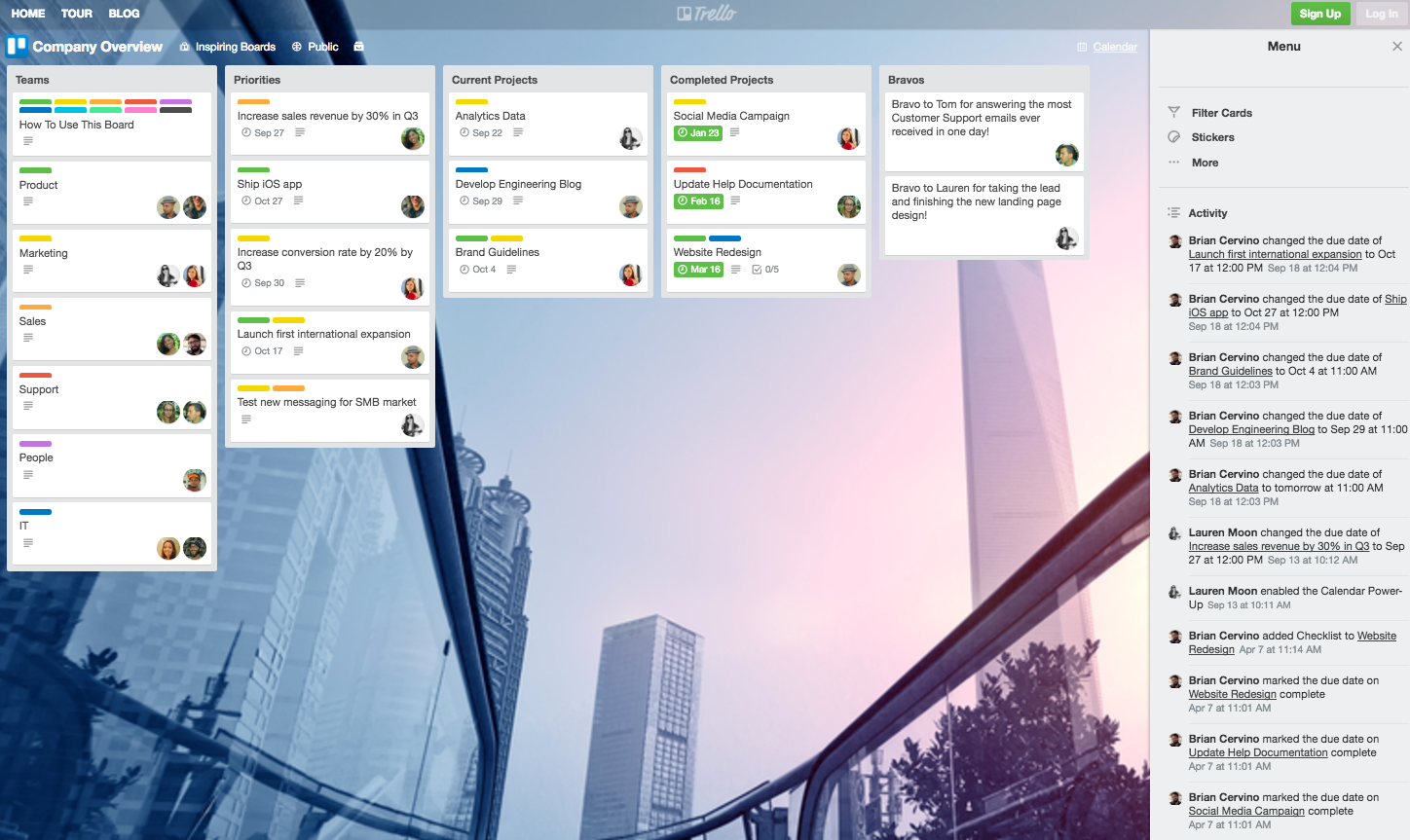
As a company, being part of the “remote culture” acts as a selling point to attract top tech talent in-house or to open up the possibility of extending your team through outsourcing. All while still meeting milestones and bottom-line targets. Being able to do both successfully boils down to two things: clarity in strategy and software tools or apps.
At CodersLink we’re helping scaling companies connect, diversify and grow their tech teams locally or remotely. We’ve specialized in understanding the remote dynamics through our service and even employ a remote work approach to our own team — we work from various cities around the US and Mexico.
We’ve personally tested, adopted and abandoned a lot of different tools over the years, comparing that to what our clients share with us we have a good framework of what tools work best for remote teams.
In short: digital tools help us close gaps that distance might open, while also increasing productivity, transparency and reducing latency.
Here are the tools we found to be most useful for remote teams.
1. Trello
Trello is a collaborative and visual way to manage projects and organize anything. Through it’s customizable boards, list and cards you can view, understand and stay informed about any project going on in the company real-time.
This tool works great for product development, as a sales pipeline, as an on-boarding manual, and my personal favorite, as a company overview tool — making sure everyone is in the know about who’s doing what.
Price: Free
2. Encrypt.me
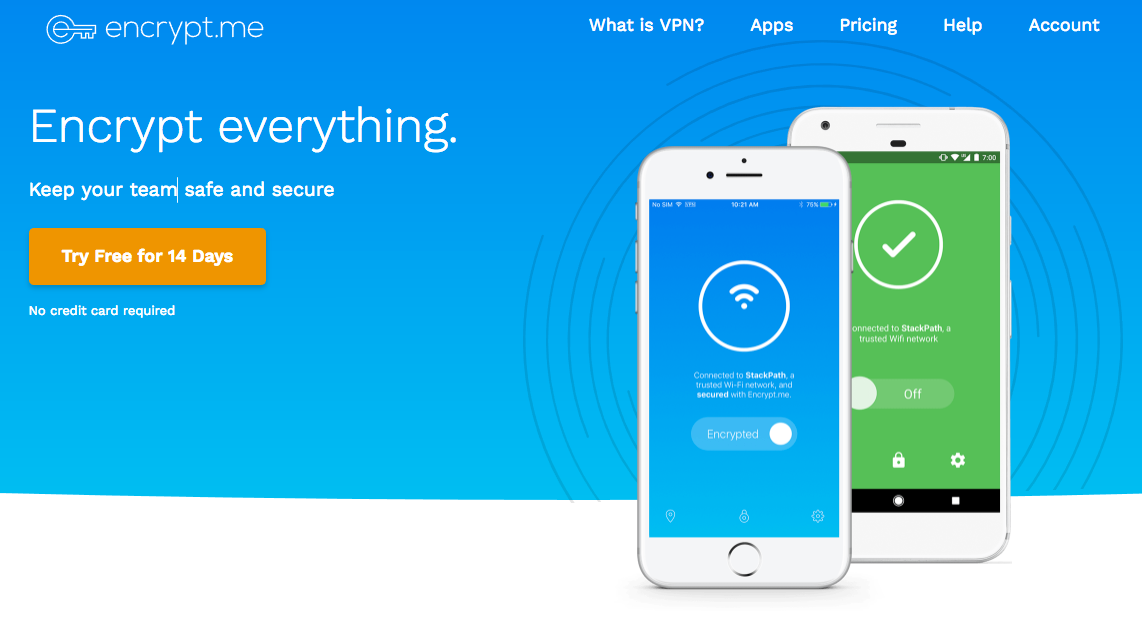
Working remotely means you may be working on public Wi-Fi’s from coffee shops, which increases the risk of compromising sensitive information.
Enter Encrypt.me — this tool ensures you are protected from any type of browser leaking, broadband spying, or Wi-Fi eavesdropping by encrypting all of your data through a VPN before it leaves your mobile or desktop device — yes it works for both! — so even if someone nearby intercepts it, it looks like gibberish to them.
One of the things we like the most? It automatically activates whenever you are in public Wi-Fi. Great for remote teams who work with sensitive information!
Price: $9.99/mo
3. HelpScout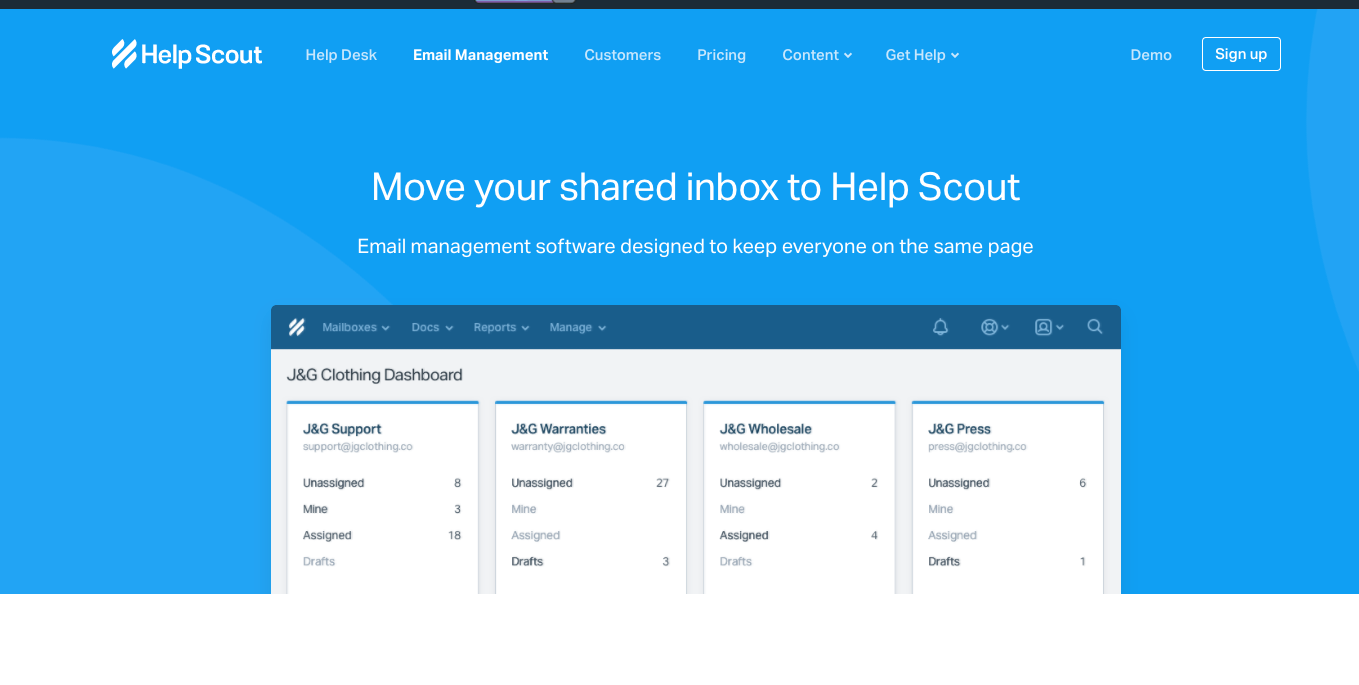
If you’ve had issues with handling too many contact emails like info@domain.com contact@domain.com and hello@domain.com HelpScout’s here to help.
In a nutshell, HelpScout is a customer support software service. One of the features I love the most is the multiple inboxes dashboard, where you have a bird’s eye view of all the shared inboxes in your account and who the incoming message is assigned to.
Plus you have over 50+ integrations!
Price: $15/user/mo standard after a 15-day free trial.
4. Slack
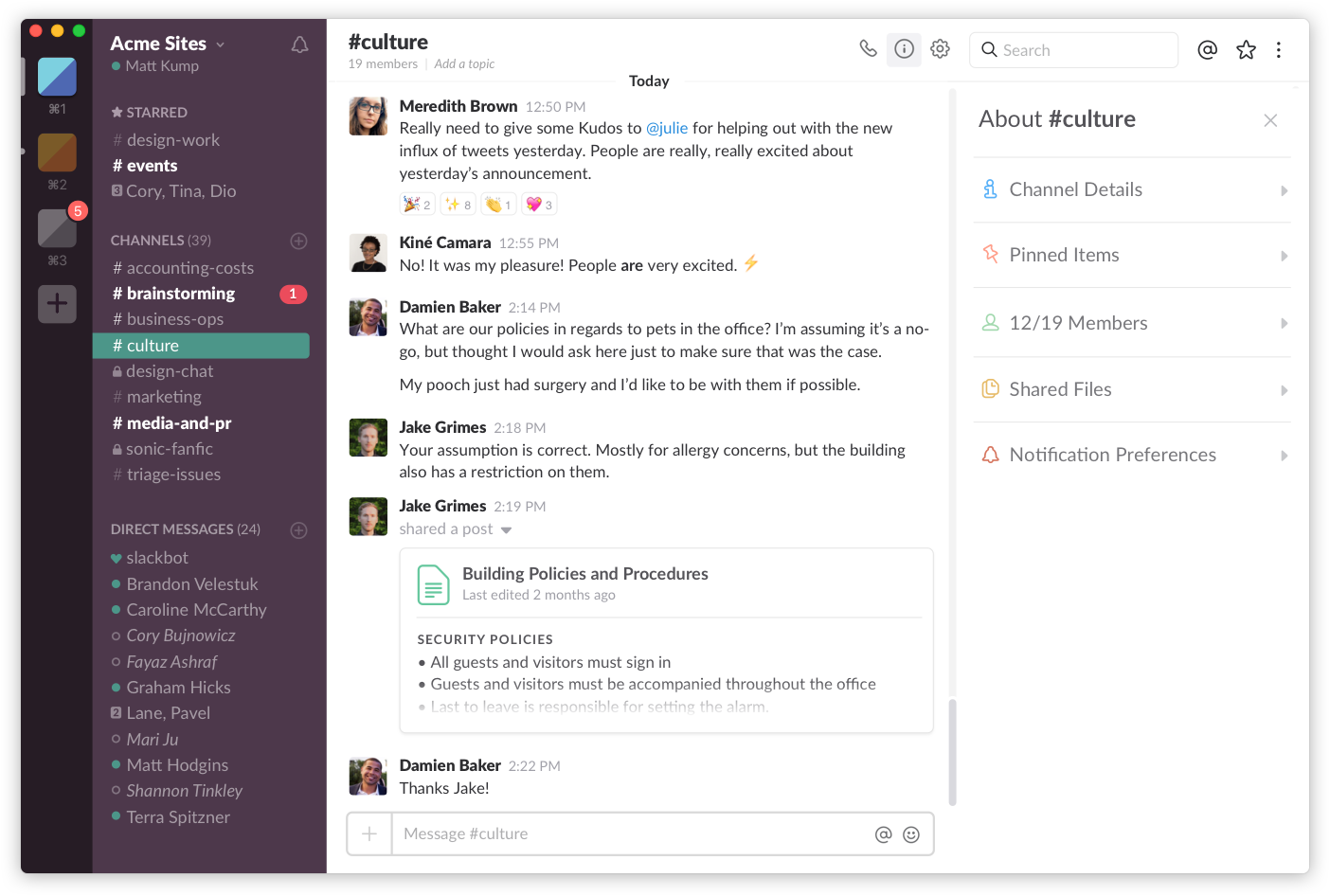
This one was kind of obvious, but an absolute must. Slack makes it so simple to have a central hub where you can communicate with all your team, part of your team, direct message a particular member and now with shared channels you can also include external vendors and partners!
Slack is the all-in-one communication tool, that not only provides a place to interact with your team, but it pairs it with an abundance of apps, services and resources to help you get work done!
A must for remote workers!
Price: Free tier
5. Marker

If you’ve had trouble communicating with your development team any product feedback like the placement of a particular button or slider in your new shiny website, you’ll love Marker.
No more screenshots and editing in preview to pass feedback along. Marker allows you to create actionable visual bug reports or issue tickets for your technical team, without leaving your website.
Best of all? It integrates with Slack, Trello, Github, Bitbucket, and Email so you can make any feedback immediately actionable.
For remote workers, not being able to show exactly what you mean can sometimes be frustrating, but not with this tool.
Price: Free Plan with only Slack Integration, Pro version for $24/mo
6. Uberconference by Dialpad
When you’re working remote there are many times you have to join a conference to discuss deliverables, milestones or simply to do a daily stand-up.
There are many conferencing services out there, but the one we love the most is Uberconference.
It is so easy to use. No pin code, no downloading software and waiting for it to load, plus you get to choose if you want to dial-in — which you can do from over 50 countries around the world — or connect through your computer. Other features include muting a noisy caller, sharing your screen, and even keeps you on schedule by calling you so you never forget about that 1:00 pm conference you always miss.
Price: Free, or Business $10/line
7. G Suite
Another fan favorite. Google’s G Suite is pretty much a given when we think about tools used by startups and remote workers as it allows for easy and seamless team collaboration.
With G Suite you get an email, calendar, storage space, real-time document editing, and a lot of other cool services. It is quite impressive and they’ve continued to add services and products to their core offering.
Price: Basic $5/user/mo, Business $10/user/mo, Enterprise $25/user/mo
8. iDoneThis
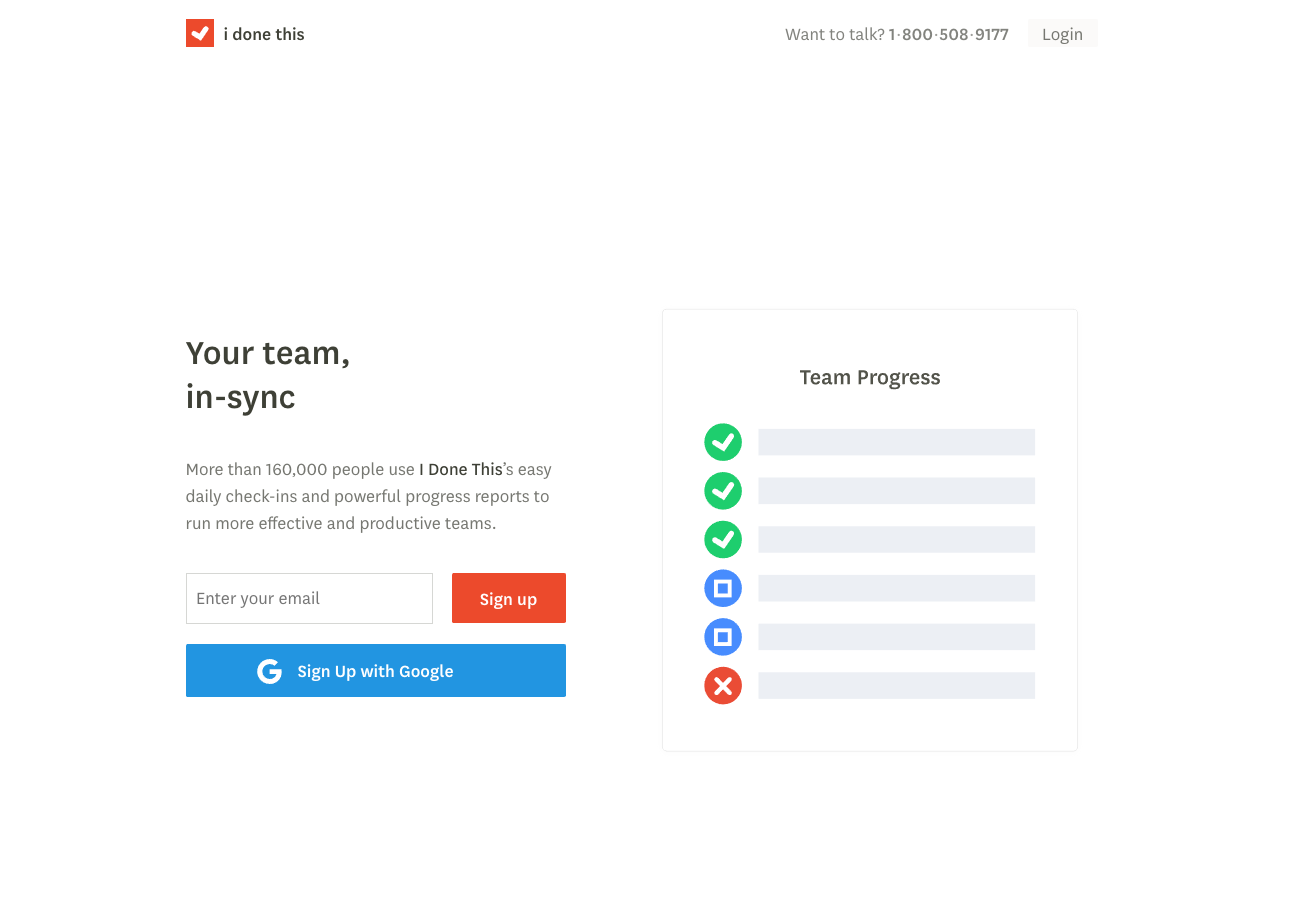
With remote work at times, there is a bit of uncertainty about what a teammate is exactly doing all day. Especially if they haven’t checked-in the group chat or recently made a report.
iDoneThis helps with this feeling by making it easy for teams to provide quick daily status updates — just like a daily standup! What’s more, it autogenerates a report so you can see a comprehensive look at how your team is doing.
Price: Standard $12.50/user/mo, Plus $25/user/mo, Enterprise $35/user/mo
9. Obie
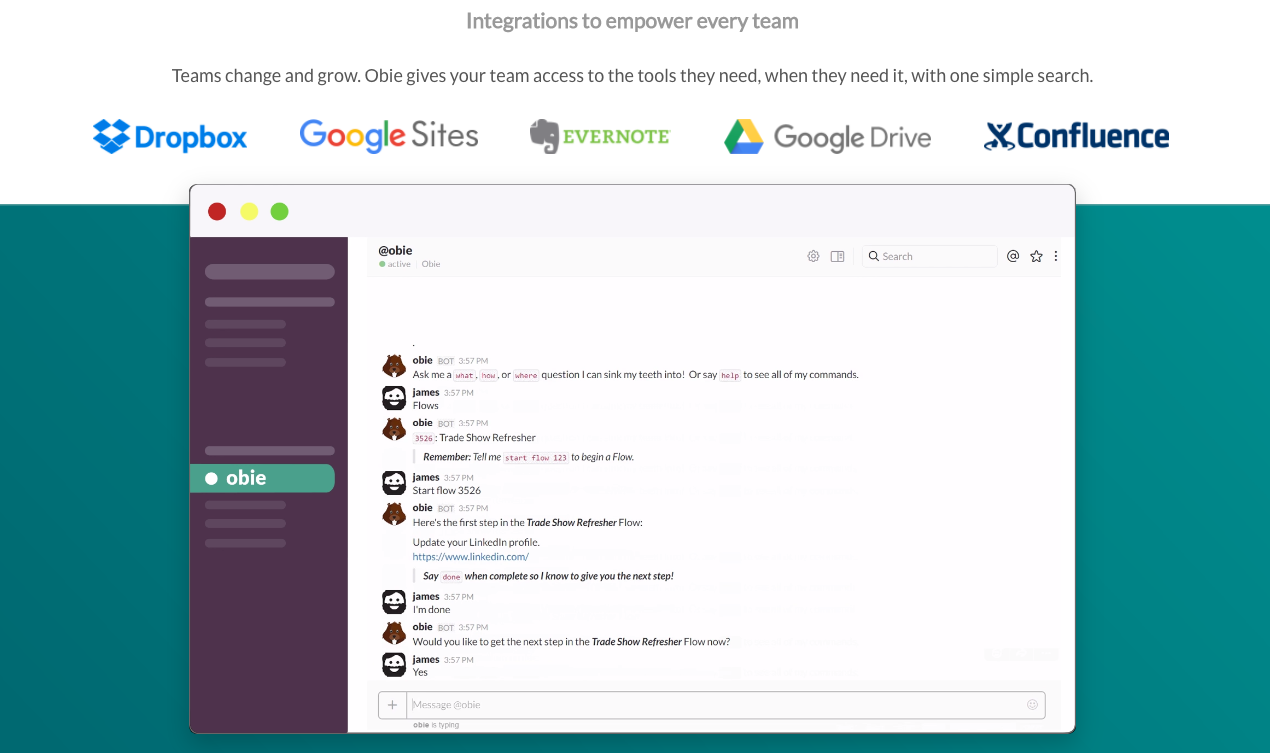
Obie is your virtual assistant for your team’s knowledge base and best practices. This tool integrates with all of your existing preferred document managers (Dropbox, Google Drive, Evernote) and powered by machine learning allows you to ask any question without leaving slack.
Additionally, you can develop playbooks and flows so you can quickly onboard new team members or get a quick refresher on how to get something done!
Price: Free, Premium $5/user/mo
10.Harvest
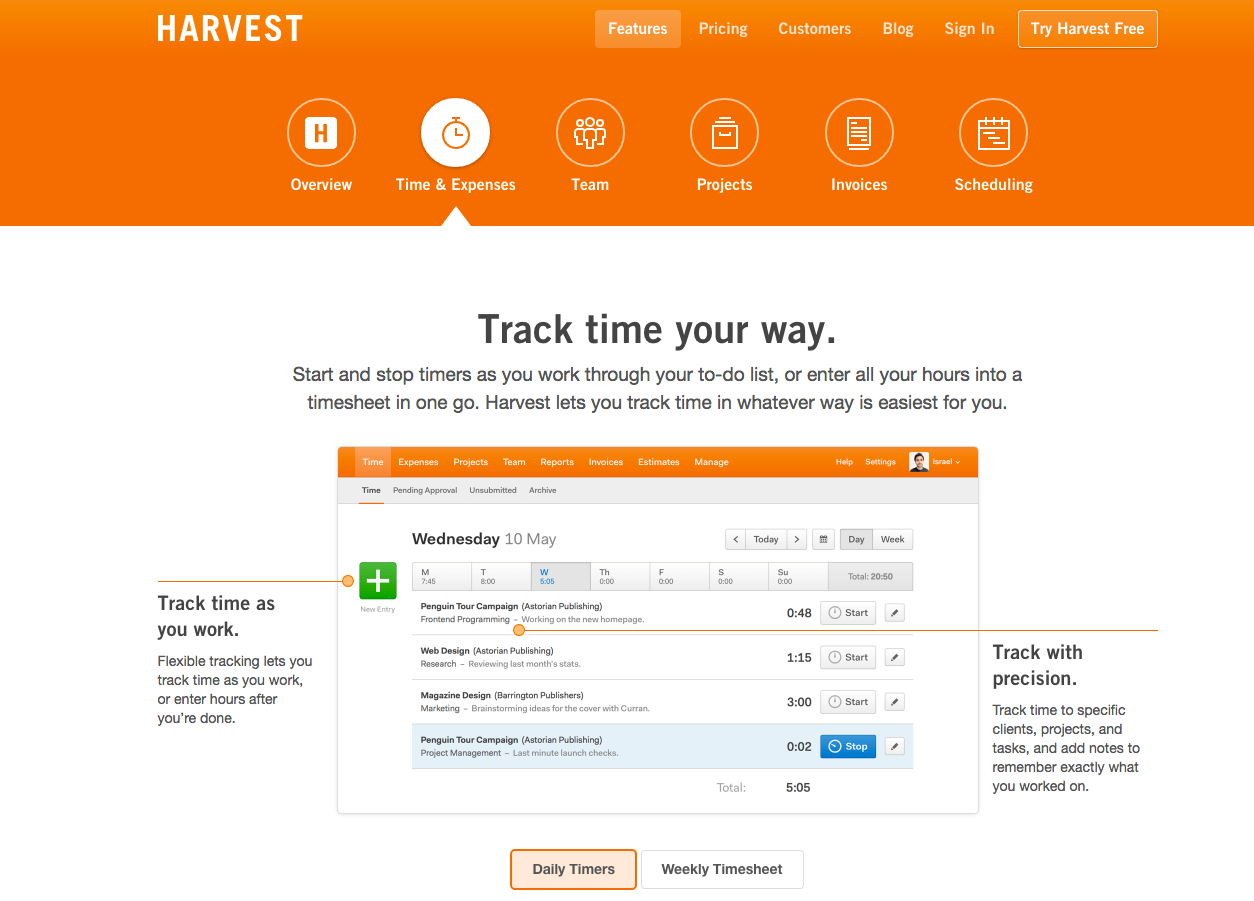
When dealing with hourly remote workers, Harvest has got your back. This tool helps managers stay informed of their team’s time and expenses. Furthermore, it provides a bird’s-eye view of how a project is performing in time and cost!
Price: Team $12/user/mo
Bonus-time!
Boomerang
This is a must-have productivity tool for email. As an add-on to your Gmail, Outlook or Android, Boomerang allows you to schedule emails at optimal times, snooze messages, get read receipts and follow up reminders if someone doesn’t answer your email. It even helps you write better emails by using artificial intelligence that provides insight on how to write actionable messages.
Price: Basic Free, Personal $4.99/mo, Pro $14.99/mo
ProofHub

This is an all-in-one project management tool for remote teams. ProofHub is packed with all the features your teams need to plan, collaborate, organize, and deliver projects on time. It includes: tasks assignment, Kanban boards, Gantt chart, team calendar, team chat, time tracking, and more.
Price: Basic 45 /mo, Pro $89/mo
Bringing it all Together
Working remotely is becoming a way of life. For managers, it’s up to them to establish clear expectations to really move the needle and work with available software tools to ensure everyone is in sync and working together.
Not every tool will work for your particular case, but knowing about them can help you employ them if and when needed.
Do you have any other tools that you use to manage remote developers? Share it with us below!
